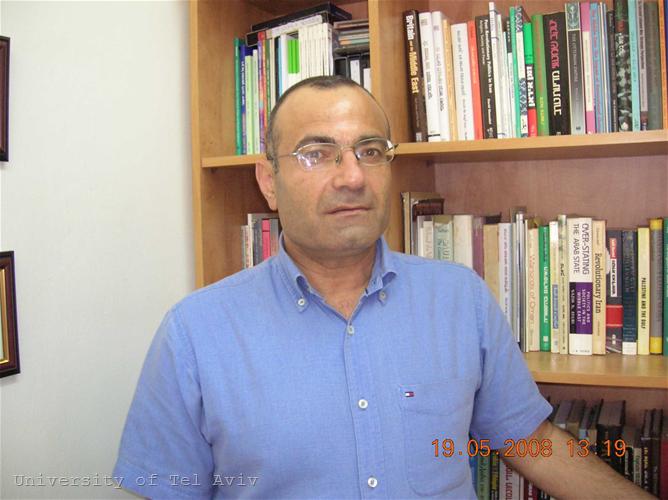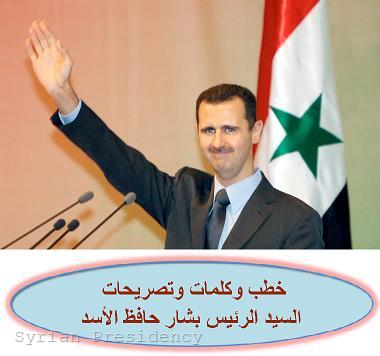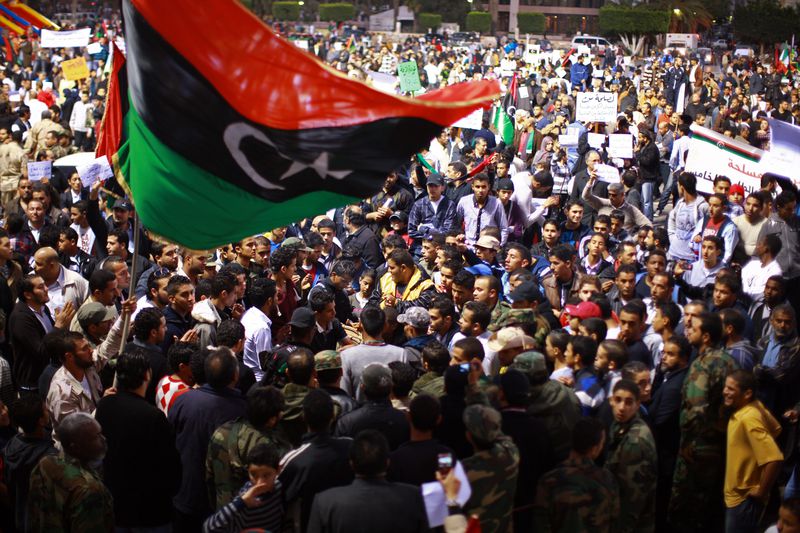The EU will curtail its relations with dictatorial governments
Adelina Marini, June 1, 2011
 Neither are they many, nor are significant the changes the European Union is offering in a joint communication of the European Commission to Parliament, Council, the European Economic and Social Committee and the Committee of the Regions, entitled A New Response to a Changing Neighbourhood. The aim of the communication is indeed to respond to what is happening in North Africa and the Middle East, which has a direct impact on the Union in the form of flows of illegal immigrants, refugees, hampered trade connections and risks of continuous conflicts in the Community's immediate neighbourhood.
Neither are they many, nor are significant the changes the European Union is offering in a joint communication of the European Commission to Parliament, Council, the European Economic and Social Committee and the Committee of the Regions, entitled A New Response to a Changing Neighbourhood. The aim of the communication is indeed to respond to what is happening in North Africa and the Middle East, which has a direct impact on the Union in the form of flows of illegal immigrants, refugees, hampered trade connections and risks of continuous conflicts in the Community's immediate neighbourhood.
Yet in the beginning of March, when the dictatorial regimes fell in Tunisia and Egypt, the European Commission made a proposal for a communication, and last week (just before the G8 summit with a major issue the events in North Africa and the Middle East), the Commission has presented the communication itself.
The novelties, as we wrote then, is that the EU is conditioning its relations with the countries in the neighbourhood on the basis money against concrete actions. The approach to each country will be different based on needs, capacity and objectives for reforms. Those who strive to achieve the European values for rule of law, free media and freedom of association, will receive the most financial incentives and opportunities for further integration with the European internal market.
And for those that do not realise any reforms, it is possible that the EU might even reduce their funding. Moreover, the document states that the Union will "uphold its policy of curtailing relations with governments engaged in violations of human rights and democracy standards, including by making use of targeted sanctions and other policy measures". Obviously this formulation is directed to those critics who blamed the EU that before the Arab Spring it used to work pretty comfortably with dictatorial and autocratic regimes in the region. It is a fact though, that the new  approach, expressed in the communication, will not change this fact a lot, as the document again relies mainly on the bilateral commitments of the member states with the countries in the region.
approach, expressed in the communication, will not change this fact a lot, as the document again relies mainly on the bilateral commitments of the member states with the countries in the region.
Nonetheless, the EU clearly states what are the expectations from the countries that would like to achieve a deepening of relations and, most of all - financial support:
– free and fair elections;
– freedom of association, expression and assembly and a free press and media;
– the rule of law administered by an independent judiciary and right to a fair trial;
– fighting against corruption;
– security and law enforcement sector reform (including the police) and the establishment of democratic control over armed and security forces.
A main object of funding will be civil organisations via the special instrument Civil Society. Besides, the EU will finance the establishment of a European Endowment for Democracy, the purpose of which will be to support political parties, non-registered NGOs and trade unions, as well as other social partners. A priority access to funding will receive media as well through assistance for civil organisations in the form of unhindered access to internet and the use of electronic communications technologies, as is the precise wording in the communication. Obviously this is aimed to illustrate the conviction that the Arab Spring was possible thanks to the freedom which communication in the Internet provides.
Focused support will be provided in the economic area too, with an accent on the development of micro, small and medium-sized companies, which would help for jobs creation. Another new element is that the EU will initiate talks with willing partner countries on a brand new trade relationship. However, this will be possible only for partner countries that are members of the World Trade Organisation. And for those countries that are not prepared or willing to start such negotiations, other measures to boost and facilitate trade relations are foreseen.
 As a whole the new things in the communication are not many. The text repeats to a large extent the philosophy of the European Neighbourhood Policy (ENP) and even keeps the conditional division in it: Eastern Partnership (the efforts aimed at the Eastern neighbours of the EU, covering entirely the post-Soviet area); the South Mediterranean and the Union of the Mediterranean. The latter is a French initiative which, like the Eastern Partnership, was still-born but with its current communication the Commission is hoping to revitalise them.
As a whole the new things in the communication are not many. The text repeats to a large extent the philosophy of the European Neighbourhood Policy (ENP) and even keeps the conditional division in it: Eastern Partnership (the efforts aimed at the Eastern neighbours of the EU, covering entirely the post-Soviet area); the South Mediterranean and the Union of the Mediterranean. The latter is a French initiative which, like the Eastern Partnership, was still-born but with its current communication the Commission is hoping to revitalise them.
With regard to financing, with the communication the Commission proposes additional 1.24bn euros to be included in the current budget of the ENP, amounting to 5.7bn euros and covering the period 2007-2013. It is foreseen the mandate of the European Investment Bank and the European Bank for Reconstruction and Development to be extended to cover the southern neighbours of the European Union. It is still forthcoming the new approach of the EU towards its neighbours to be reflected in specific proposals for the post-2013 multiannual financial framework, the debates on which have already started.
What is curious in the communication is that in its very beginning it is pointed out that the ENP must be a policy of the Union "with the Member States aligning their own bilateral efforts in support of its overall political objectives. Equally, the European Parliament has a central role to play in helping to deliver some of its central objectives". This new role the Parliament does not miss a chance to mention ever since this possibility has been created with the Lisbon Treaty. Taking advantage of this new role leading MEPs heavily criticised the member states.
The leader of the Alliance of Liberals and Democrats for Europe (ALDE), Guy  Verhofstadt, welcomed the communication but said that the real challenge would be the member states to be convinced to support entirely these proposals, especially with regard to market access and mobility. "The Council should go one step further and cancel the debts of those emerging democracies in order to give them a real chance to kick-start their economies", the former prime minister of Belgium said. A demand which is unlikely to be accepted positively by most member states, fighting their huge debts and hoping the stability of the euro area to be maintained.
Verhofstadt, welcomed the communication but said that the real challenge would be the member states to be convinced to support entirely these proposals, especially with regard to market access and mobility. "The Council should go one step further and cancel the debts of those emerging democracies in order to give them a real chance to kick-start their economies", the former prime minister of Belgium said. A demand which is unlikely to be accepted positively by most member states, fighting their huge debts and hoping the stability of the euro area to be maintained.
The Greens in the European Parliament also welcomed the document as the spokesperson of the group on foreign affairs, Franziska Brantner said that the document was a real attempt the ENP to be put in the right direction. "It is now abundantly clear that the EU and its member states got a lot wrong in their past relations with the neighbourhood countries, particularly in North Africa. As such, reorienting the Neighbourhood Policy is vital for re-establishing the credibility of the EU in the region".
 According to Ms Brantner, it is very important that the EU recognises that civil society, and not just governments, should be core partners for the EU and that human rights should be central to neighbourhood policy. However, she thinks that the document does not answer the questions how the distinction between the countries will be made on the basis of democracy and rule of law, what criteria will be used, who will monitor the implementation and what will happen if the conditions are not met.
According to Ms Brantner, it is very important that the EU recognises that civil society, and not just governments, should be core partners for the EU and that human rights should be central to neighbourhood policy. However, she thinks that the document does not answer the questions how the distinction between the countries will be made on the basis of democracy and rule of law, what criteria will be used, who will monitor the implementation and what will happen if the conditions are not met.
The issue of the changing European neighbourhood will be the main topic of the European Council in the end of June in Brussels.
 | © University of Tel Aviv
| © University of Tel Aviv | © Syrian Presidency
| © Syrian Presidency | © UN
| © UN